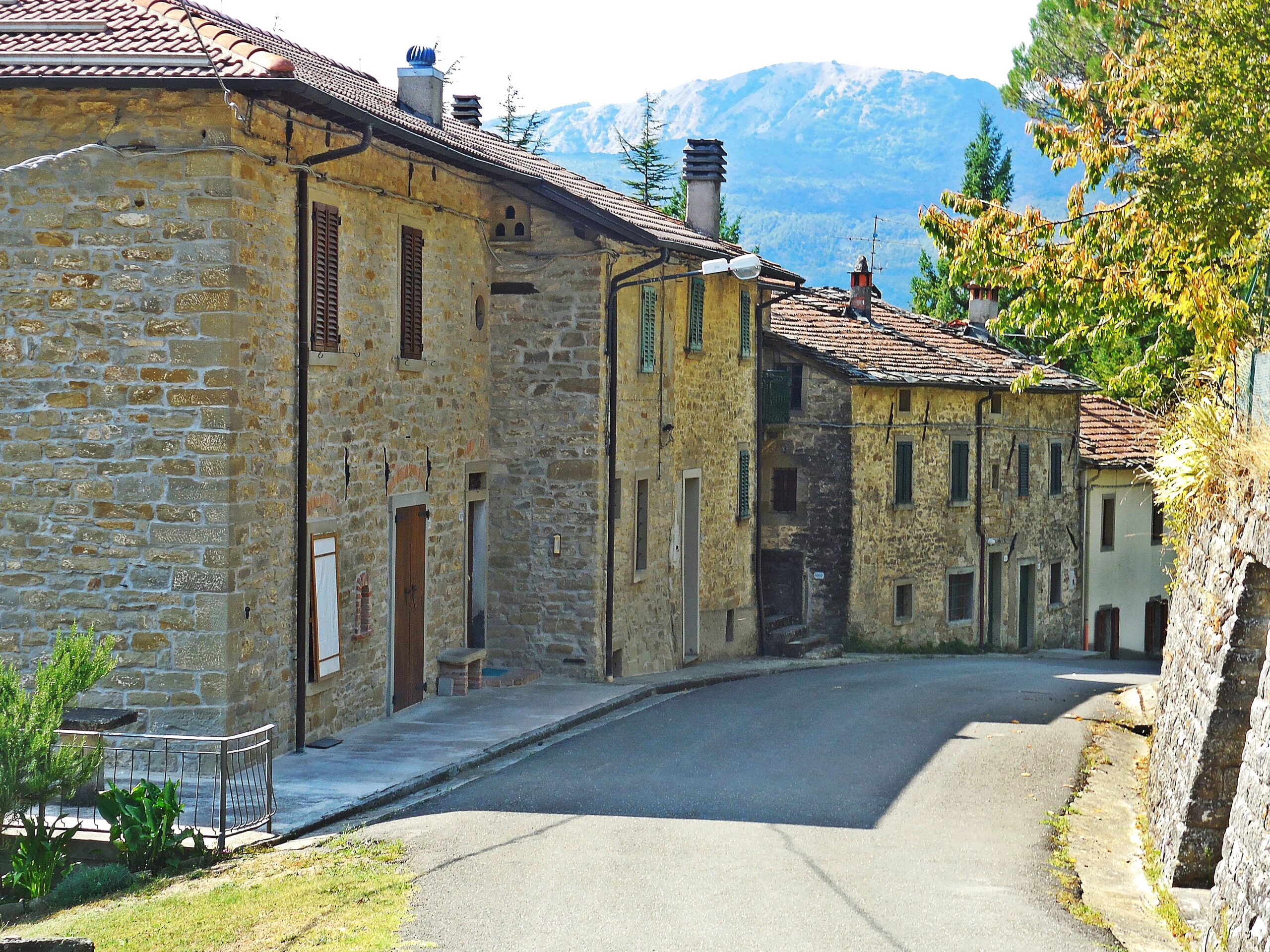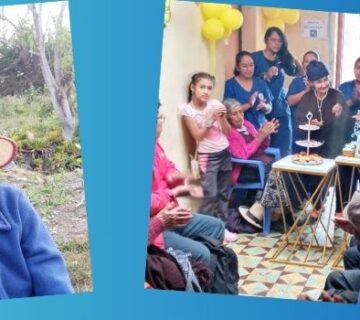On 31st December 2022 Luisa Del Zanna, one of the first focolarine in Florence, left us. She was born in 1925 into a Christian family as one of eight children. When she got to know the spirituality of unity she immediately made it her own. In 1954 she joined the focolare in Florence. In the following years she saw the birth of and followed various communities of the Movement.
From 1967 she lived in Rocca di Papa (Italy) where Chiara Lubich, foundress of the Focolare Movement, had entrusted her with taking care of its secretariat, the archives, which she coordinated until 2007, and the nascent St Clare Centre (Centro Santa Chiara) for Communication, together with one of the first focolarini, Vitaliano Bulletti. “The guardian of the ‘treasures of the Focolare’” – we read in a article from 2008 in Città Nuova, “Luisetta, a name that caresses you, that makes you think of a delicate and gentle creature. And that really describes Luisa Del Zanna with her petite figure; one of those people who are usually entrusted with important tasks because of their discretion, competence and fidelity, whose value we don’t always realise because they remain behind the scenes, but without whom the cogs of the wheels would stop turning…”.
In her early years, she worked as a schoolteacher in a small village in the mountains of northern Italy which she reached by taking part of the road on foot or on a donkey. It is her experience of that time that we are publishing here, keeping the original style of the year it was written, 1958.
“Please, which is the road to Bordignano?[1]”
After a four-hour bus journey, I had arrived at the principal municipality of that area which I had been unable to find on the topographical map (scale 1:100,000). No information agency had heard of it, and there was no mention of it on the timetables for the various means of transport.
Yet the appointment letter stated quite clearly: ‘Your ladyship is invited to take up service on Friday 7 October at Bordignano Primary School in the municipality of Firenzuola”. And the name was written in block letters. There could be no mistake.
The person to whom I had addressed the question – a tall, robust man – looked at me, puzzled: “What did you say?” and made me repeat the question. He thought he had misunderstood. Then he pointed into the distance: “You see that hill over there? Behind it are two others and then there’s Bordignano. I’m just going there now to deliver the post”.
I realised immediately that he was going there on foot by the big boots he was wearing and his tanned face.
I gasped in dismay for a moment. I looked at that hill, then at the man’s boots and realised there was no other way, so I took courage.
“I’ll go with you,” I said resolutely.
The postman didn’t seem to understand, just as before, but I set off and followed him. It was a long three-hour journey, interrupted only by brief pauses at the top of the steep climbs where there were impetuous gusts of wind where the valley opened up.
 Eventually, I arrived and saw three stone houses in a row, and further up, at the top of a tree-lined lane, the church with its bell tower.
Eventually, I arrived and saw three stone houses in a row, and further up, at the top of a tree-lined lane, the church with its bell tower.
I greeted an old man, sitting with a pipe in his mouth, on the doorstep. I told him I was the teacher.
He got up and moved to accompany me. We went through a bumpy door into the second of the row of houses, all of which were owned by the old man; the first was the shop that stocked everything (except for a few things I didn’t have which I really could have done with).
There were hobnailed boots, matches, mousetraps (all kinds of mousetraps), stale bread, notebooks, everything.
We climbed a ladder and entered the school.
It was a large room with a few desks stacked in a corner (I had never seen such desks: six children could have fitted in one of them), a splintered chair, a broken blackboard. That was all the furniture.
– Over here is your house,’ the old man explained to me, ‘you can be happy! This year there is running water. I had it installed, at my own expense!
He ushered me into a small kitchenette; an unlit fireplace stood out in one corner. I was cold. It was starting to get dark: I looked for a light switch but there was none. (In the days that followed, I learned to use the carbide lamp and work and write by the light of that flickering tongue of fire).
I sought out the priest that very same day (I learned that his church was the Pieve, the most beautiful of all the churches in the valley and the surrounding hills) and begged him to announce at Sunday Mass that school was starting.
“But, signorina, it’s harvest time. Now there are chestnuts, then olives; the children help a lot with this work. School?” he added, “we’ll talk about that in January”.
It all seemed impossible to me. I had learned some time ago not to shy away from difficulties. Quite the contrary. I had been told they serve as springboards, and I had seen that it was true. I found another way to let people know I had arrived. I spotted my pupils’ homes among the scattered, isolated cottages and went there.
The first was Angiolino and Maria’s house. I am left with a vague memory of blackness and smoke from that one. There was Maria crouching in a corner among the ashes of the hearth (she had a sore throat), holding her arm over her face so that I wouldn’t see her. Angiolino was standing in the corner with his head down, following the conversation I was having with his mother.
During the conversation I realised how much the people distrusted the school and the teacher even more.
I listened in silence. I tried hard to understand the woman who spoke in a harsh, rancorous, almost incomprehensible dialect. I discovered that the boy had left school two years ago, without having completed his elementary studies, because of the mischief he was causing against the teachers.
I just said a few things: I had come for them, the school was free and the children would have the afternoon off to help in the fields.
“We’ll see,” said the woman, “I’ll send Maria”. As I was leaving I greeted the boy: “I would like to make the school beautiful for the little ones who come, if you can come and help me… I’ll be waiting for you”.
There was no need for many more invitations.
One by one the children arrived, the little brothers in pairs, uncertain, fearful. They had spread the word about school when they met for games, or in the fields, while tending the flock, or by being together in the woods collecting chestnuts. “Are you coming too? It’s nice, you know!” “It’s nice there, the teacher doesn’t hit!”
The school soon became cosy with Angiolino’s valuable help. October’s nature offered rich ornamental material in the varied colour of its leaves.
I established a relationship with each of the pupils and the pupils’ relationships with each other based on Jesus’ commandment: “Love one another…”. It was the basis for all the work that year. The school became a little paradise. The favourite book was the Gospel and those children’s minds, unused and closed to human reasoning, opened up to the logic of the Gospel with surprising spontaneity.
The method was challenging. “Pro eis sanctifico me ipsum” (For them do I sanctify myself), Jesus had said, otherwise it would be ineffective.
I realised at the end of the year that the evangelical life of those little ones had not remianed within the confines of the school, but had spilled out into their homes and their families. I realised this from the grateful greetings of the parents who had not remained indifferent to the breath of joyful life that the children brought back to them. The rough exterior that had made them seem insensitive disappeared from their souls and, unconsciously, that same life had entered them.
Experience of Luisa Del Zanna
[1] Bordignano, in the municipality of Firenzuola (Florence, Italy)


 Italiano
Italiano Español
Español Français
Français Português
Português




Não só uma história maravilhosa, divina, mas me levou a uma profunda meditação pelo testemunho de Luisetta numa fé inabalável, perseverança e plena confiança em Deus. Obrigada Luisetta!
Maravilhosa, a experiência de Luisetta, profunda, humano-divina. Faz até lembrar filmes como “Mucize”, naturalmente com um resultado bem na nossa linha, da Evangelização por meio do fazer-se um. Não só admirável, mas também imitável.
Gostei muito dessa estória! principalmente ,da coragem e perseverança da professora.
Meraviglioso il racconto della maestra , che richiama molto la mia prima esperienza ….avevo venti anni perché il primo anno di insegnamento ,a 19 anni era stato agli adulti analfabeti e semianalfabeti …..in una frazione di Altino prov.Chieti-interessante